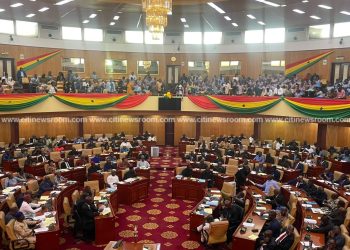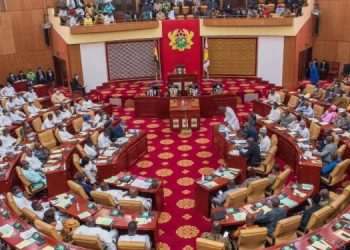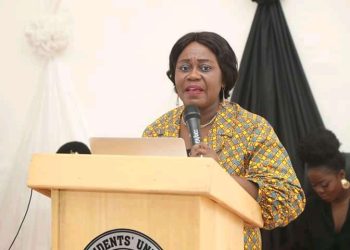The Ghana Education Service (GES) has raised concerns over the rising prevalence of tattooing, multiple piercings, and skin bleaching among students, deeming it “a troubling phenomenon”.
Additionally, the GES has expressed deep concern regarding the issues of teenage pregnancies and cohabitation, highlighting their detrimental impact on students’ educational pursuits, particularly girls.
Priscilla Christabel Eshun, the Central Regional Girls Education Officer of the GES, remarked with astonishment that some young students had conspicuous tattoos with unusual names and meanings.
These findings were gathered during the GES’s visits to certain districts in the Central Region as part of its ‘Life Skills Programme’ designed to empower students.
The districts visited encompass Ajumako-Enyan-Essiam, Assin South, Ekumfi, Upper Denkyira West, Twifo-Hemang- Lower-Denkyira West, and the Komenda-Edina-Eguafo-Abrem Municipality.
Eshun presented these findings at the Second Quarter Sub-Implementing Partners (IPs) Review Meeting on sexual and gender-based violence. The meeting was facilitated by the Regional Coordinating Council with backing from the United Nations Population Fund (UNFPA).
Eshun stated: “In one of the schools we visited, a young girl had bleached her skin to the point where it was peeling off and emitting an unpleasant smell. We also observed students with multiple piercings in their ears.
“This has become a fashion trend, and many girls are engaging in it without considering the potential health, employment, and other socio-economic consequences.”
She also disclosed that many boys had left school for a variety of reasons and were operating tricycles (Aboboyaa or Pragyia). Investigations indicated that many young girls were associating with these boys for financial aid.
“Regrettably, many girls are enticed into such relationships for financial gain, using the money to purchase sanitary pads and other personal items,” Eshun revealed.
She underscored that the GES forbids tattooing, multiple piercing, and skin bleaching as outlined in its harmonised Code of Conduct for students in pre-tertiary schools.
She elaborated that the GES Code of Conduct underscores the requirement for students to dress neatly, adhere to the prescribed dress code and footwear consistently, and avoid accessories such as chains, bangles, caps, and bracelets.
She added that spectacles are only allowed with a valid medical prescription and modifications to school uniforms or dresses are not permitted.
“Students shall not wear chains, bangles, caps, or braces. Wearing of spectacles shall require a medical prescription.
“No alterations to school uniforms or dress shall be allowed. Possession or use of un-prescribed attire by a student is an offence,” Eshun explained.
She noted that these guidelines also pertain to personal grooming, emphasizing the importance of maintaining a decent haircut as defined by school authorities.
According to her, clean, neat, and modest hair is encouraged, with a focus on avoiding extreme styles and colours.
For male students, she said a styled haircut and a clean-shaven beard are acceptable.
“Students should have a decent haircut as prescribed by the school authorities. Hair should be clean, neat, and modest, and avoid extremes in styles and colour. Men’s hair should be neatly struck and beard clean-shaven.”
—–
Explore the world of impactful news with CitiNewsroom on WhatsApp!
Click on the link to join the Citi Newsroom channel for curated, meaningful stories tailored just for YOU: https://whatsapp.com/channel/0029VaCYzPRAYlUPudDDe53x
No spams, just the stories that truly matter! #StayInformed #CitiNewsroom #CNRDigital











